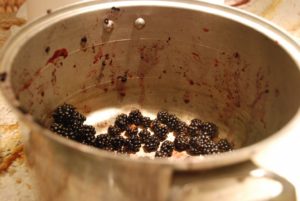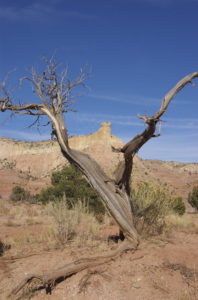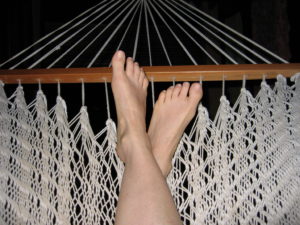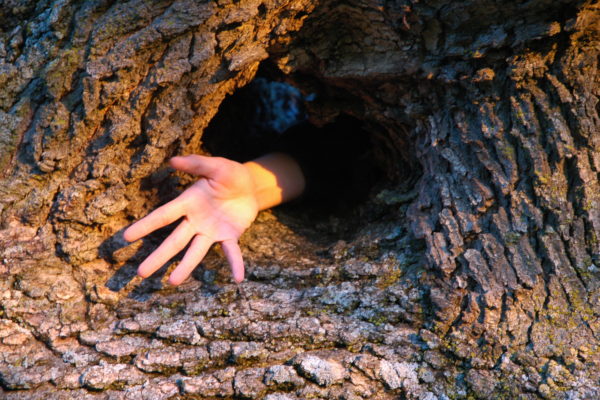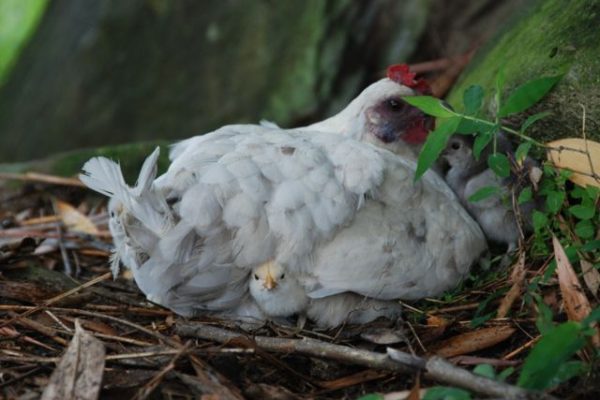 As parents, most of us make terrible fortune-tellers. When my daughter Eileen was a first-grader, she was sent to the principal’s office for fighting with her friend Eric. Apparently, he’d put a rock in the way of ants marching on the sidewalk, and Eileen felt bad for them “because they are so little it made it hard for them to do their work.” When Eric refused to move the rock, Eileen kicked him in the shins.
As parents, most of us make terrible fortune-tellers. When my daughter Eileen was a first-grader, she was sent to the principal’s office for fighting with her friend Eric. Apparently, he’d put a rock in the way of ants marching on the sidewalk, and Eileen felt bad for them “because they are so little it made it hard for them to do their work.” When Eric refused to move the rock, Eileen kicked him in the shins.
At the time, I interpreted Eileen’s motivations as tender-heartedness (toward the ants, anyway), but I never would have imagined that this foreshadowed an interest in workers’ rights. Today, Eileen researches and writes about working conditions in Latin America for a D.C. think tank.
We know from experience that we don’t know how our lives will unfold, and that we often see our own life events more clearly in retrospect. Looking back, we can see how seemingly random events make up the stones in our life’s pathway toward individuation. It’s all the more difficult, then, to look ahead and see how our children’s sense of identity is deepening, especially when that journey doesn’t match with what we’ve mapped out for them.
From Childcare to College: Joys, Disappointments and Worries
As prospective parents, we tell ourselves stories about what our child will be like, entertaining idealized images of family life. As parents, we need to be respectful of the way our child’s life will coalesce—but staying out of it is tough. We want to help and to shape them; isn’t that our job? But for most parents, those idealized imaginings will be replaced with realistic understanding that comes from experience. From childcare to college, there will be joys, but also disappointments and worries.
The Haggadah (the book of readings for a Seder service) refers to four types of children who, viewing the Seder in different ways, ask different questions about Passover. One child is wise, one wicked, one simple, and one doesn’t know how to ask. Why four types? According to artist David Moss, “Every child is unique and the Torah embraces them all. . . . Diversity, how we deal with it, and how we can discover the blessing within it, is perhaps the theme of the midrash of the Four Children.” For good reason, Moss represents the four children as playing cards: “As in a game of chance, we have no control over the children dealt us. It is our task as parents, as educators, to play our hand based on the attributes of the children we are given.”
Many factors will play a role in who our child becomes. When we try too hard to control who our child becomes (social butterfly, academic striver, sports hero) we risk ignoring their own preferences and their ability to develop according to a rhythm of their own. That is not all we risk. As Carl Jung wrote, “Nothing exerts a stronger psychic effect upon the environment, and especially upon children, than the life which the parents have not lived.” (“Paracelsus,” 1929. The Spirit in Man, Art, and Literature, tr. R. F. C. Hull, 1966.) Pushing our child to be the best at something they don’t feel engaged with is too often our way to living our lives through our child, rather than allowing them to grow in ways they would choose.
Knowing When to Step In and When to Let Go
 Kids have inborn abilities that we can support and encourage, respecting the differences between them, their siblings, and their peers. The way the Army and Air Force train bomb-sniffing dogs illustrates this concept. All dogs have olfactory acuity, but for a dog to do well in training, it must be willing to go to the target repeatedly without fetching (which would have disastrous results) and without losing interest, instead being motivated by the dog handler’s praise and rewards. So, even in such an important and dangerous job, the factors of individual traits (good nose, persistence), and environmental (the handler’s praise and rewards) play a role in which dogs will succeed at their job. Labs and German shepherds make great bomb sniffers, but my Tibetan terrier would never have been good at this job. If I throw a stick for her to fetch, she just stares at me. But she’s a great help in alerting me with her shrill bark (in the middle of the night) to the raccoons in the trees. The point is, I love her even if she’ll never be a good retriever; she’s a fantastic Tibetan terrier.
Kids have inborn abilities that we can support and encourage, respecting the differences between them, their siblings, and their peers. The way the Army and Air Force train bomb-sniffing dogs illustrates this concept. All dogs have olfactory acuity, but for a dog to do well in training, it must be willing to go to the target repeatedly without fetching (which would have disastrous results) and without losing interest, instead being motivated by the dog handler’s praise and rewards. So, even in such an important and dangerous job, the factors of individual traits (good nose, persistence), and environmental (the handler’s praise and rewards) play a role in which dogs will succeed at their job. Labs and German shepherds make great bomb sniffers, but my Tibetan terrier would never have been good at this job. If I throw a stick for her to fetch, she just stares at me. But she’s a great help in alerting me with her shrill bark (in the middle of the night) to the raccoons in the trees. The point is, I love her even if she’ll never be a good retriever; she’s a fantastic Tibetan terrier.
We don’t know who our children will become. There is no way to predict or to order up the perfect offspring. They are shaped by many factors. Our role as parents is to provide the best environment for their growth, knowing when to step in and when to let go.
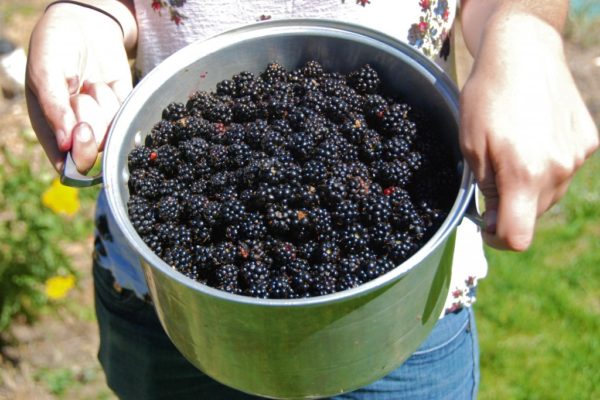 Being mindful when doing daily tasks is a lesson in informal meditation practice.
Being mindful when doing daily tasks is a lesson in informal meditation practice.